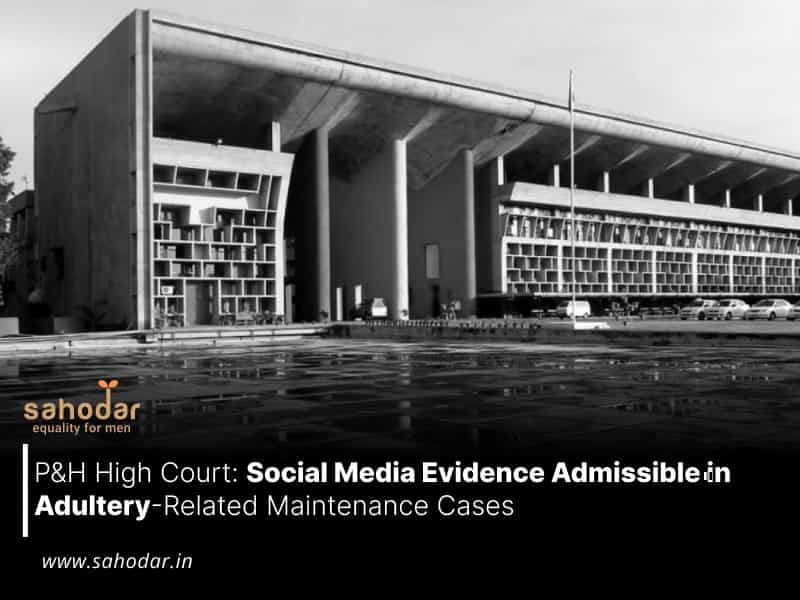The Punjab and Haryana High Court has set a significant precedent by ruling that social media evidence can be considered when evaluating adultery allegations during interim maintenance hearings.
Justice Sumeet Goel emphasized that family courts have the authority to review any relevant social media evidence, including digital data from platforms such as Facebook, Twitter, Instagram, and WhatsApp. “Social media content presented by the husband to establish the wife’s adultery is pertinent in determining interim maintenance and litigation costs,” noted Justice Goel.
The decision was made regardless of whether such evidence conforms strictly to the Indian Evidence Act or Bharatiya Sakshya Adhiniyam, reflecting the evolving standards of legal evidence.
The case involved a husband’s revision petition against a family court order requiring him to pay ₹3,000 per month as interim maintenance and a one-time litigation fee of ₹10,000 to his wife. His legal team submitted photographs and other digital content to prove the wife’s involvement with another man, challenging her right to claim maintenance.
On the other hand, the wife’s counsel argued that adultery allegations should not influence decisions at the interim maintenance stage and questioned the authenticity of the husband’s evidence.
Justice Goel’s ruling underscored the need for the justice system to keep pace with technological advancements, allowing courts to treat digital footprints as substantial evidence.
“The reality of our current social engagements through digital platforms allows such material to be used effectively in court proceedings,” he added.
After evaluating the submissions, the court determined that the evidence adequately suggested a relationship between the wife and another person. Along with her acknowledgment of residing with the man, the court found her unqualified to receive the requested financial support.

